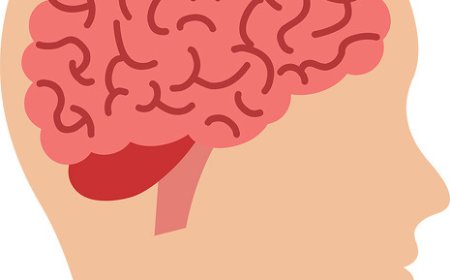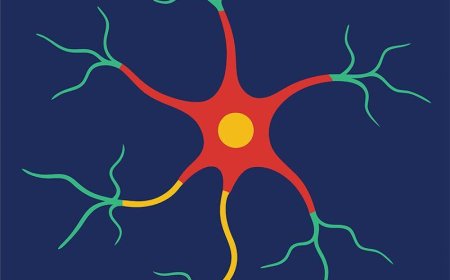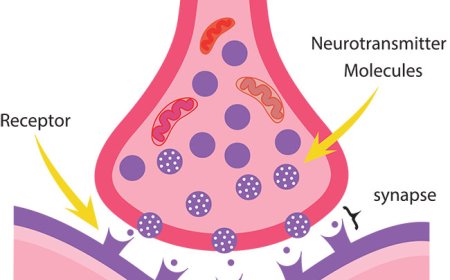Autonomic Nerves: How Your Body Controls Itself Automatically
Learn what autonomic nerves do, how they control breathing, heartbeat, and digestion, and why they are vital to body functions you don’t even think about.

🧠 Introduction: The Nerves That Work Without You Thinking
Have you ever noticed your heart beating faster when you're nervous—or your stomach growling when you're hungry? These things happen without you even trying. That’s because your body has a special system of nerves that handles automatic tasks. These are called autonomic nerves, and they’re part of your autonomic nervous system.
Autonomic nerves control body functions that happen without you having to think about them, like breathing, heartbeat, digestion, sweating, and even pupil size. You don’t tell your heart to beat or your lungs to breathe—it just happens, thanks to these amazing nerve pathways.
🔧 What Are Autonomic Nerves?
Autonomic nerves are a type of nerve that carries signals between your brain, spinal cord, and your internal organs. They are part of the peripheral nervous system and control involuntary functions—actions your body does on its own.
These nerves control things like:
Heart rate – speeding up or slowing down depending on your needs
Breathing rate – adjusting when you’re calm or exercising
Digestion – moving food through your stomach and intestines
Sweating – helping cool your body when you're hot
Bladder control – telling your body when it's time to go
These processes happen constantly and automatically to keep your body in balance and working properly.
🧬 Two Sides of the Autonomic Nervous System
The autonomic nervous system has two main parts that work together to control how your body reacts to different situations:
1. Sympathetic Nervous System – “Fight or Flight”
This system activates your body in emergencies or stressful situations. When you’re scared, excited, or in danger, the sympathetic nerves help your body react quickly.
They make your body:
- Breathe faster
- Make your heart beat faster
- Send more blood to your muscles
- Open your airways and pupils
- Slow down digestion
This is known as the fight or flight response—your body gets ready to either run away or take action fast.
2. Parasympathetic Nervous System – “Rest and Digest”
This system takes over when your body is calm and safe. It helps you relax, recharge, and digest food.
It does things like:
- Slow your heartbeat
- Lower your blood pressure
- Help you digest food
- Control saliva and tears
- Help your body rest and repair itself
Together, these two systems balance each other out, keeping your body prepared but also peaceful when needed.
🔁 What Happens When Autonomic Nerves Don’t Work Right?
If autonomic nerves are damaged or don’t send the right signals, your body may have trouble controlling automatic functions. This is called dysautonomia, and it can cause symptoms like:
- Dizziness
- Irregular heartbeat
- Trouble swallowing
- Unusual sweating
- Digestive problems
Some conditions, like diabetes, can affect autonomic nerves. That’s why keeping your body healthy overall—with good nutrition, exercise, sleep, and hydration—helps protect these nerves too.
🧠 Vocabulary List
Autonomic nerves Nerves that control involuntary body functions like heartbeat and digestion
Involuntary An action that happens automatically, without thinking
Sympathetic nervous system Part of the autonomic system that prepares the body for action ("fight or flight")
Parasympathetic nervous system Part of the autonomic system that calms the body down ("rest and digest")
Heart rate The number of times your heart beats in a minute
Peripheral nervous system Nerves outside the brain and spinal cord
Dysautonomia A condition where autonomic nerves do not function properly
Fight or flight The body’s quick reaction to stress or danger
Rest and digest The body’s recovery mode, controlled by the parasympathe
⭐ Kid-Friendly Summary
Motor nerves are the wires that help your brain tell your muscles what to do. When you want to move, your brain sends a signal through your spinal cord and down a motor nerve to your muscles. They tighten and move your body. Some motor nerves help you do things on purpose, like running or smiling, while others work automatically, like making your heart beat or your stomach digest. Without motor nerves, you couldn’t move at all!
🤯 Fun and Interesting Facts
Motor nerve signals can travel at speeds up to 200 miles per hour!
Babies’ motor nerves aren’t fully developed at birth—that’s why they have jerky movements.
You have about 600 muscles in your body, and all of them rely on motor nerves to move.
Some animals, like starfish, move without a brain, but they still have motor nerves.
The largest nerve in the human body, the sciatic nerve, is a motor nerve that runs from your lower back to your foot.
❓ Interactive Quiz: Know Your Nerve System
1. What do autonomic nerves control?
A. Your jumping ability
B. Your dreams
C. Breathing, heartbeat, and digestion
D. Writing and drawing
2. What happens during the fight or flight response?
A. Your heart slows down
B. You feel sleepy
C. Your body gets ready for action
D. You stop breathing
3. What is the job of the parasympathetic system?
A. Help you run faster
B. Make you anxious
C. Calm you down and help with digestion
D. Stop your muscles
4. What does “involuntary” mean?
A. Something you choose to do
B. Something that makes you fall asleep
C. Something that happens automatically
D. Something you forget
5. What can damage autonomic nerves?
A. Laughing too hard
B. Watching TV
C. A disease like diabetes
D. Drinking water





















































